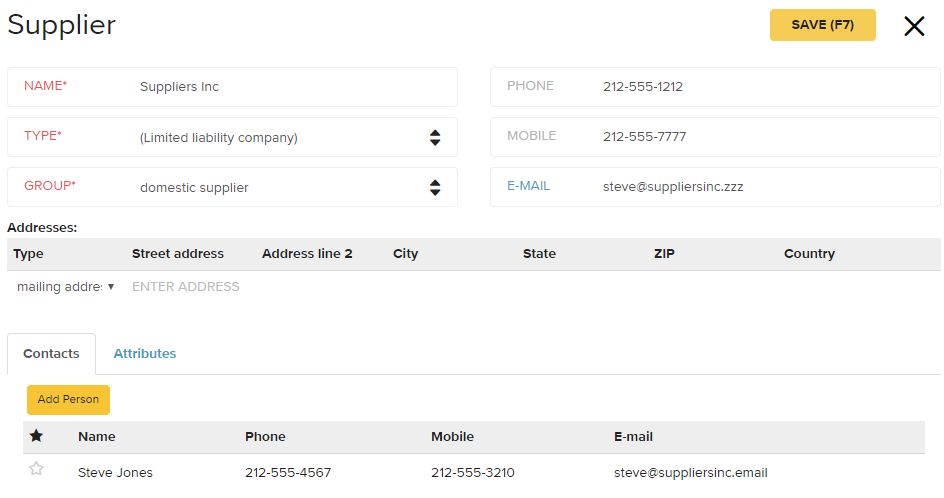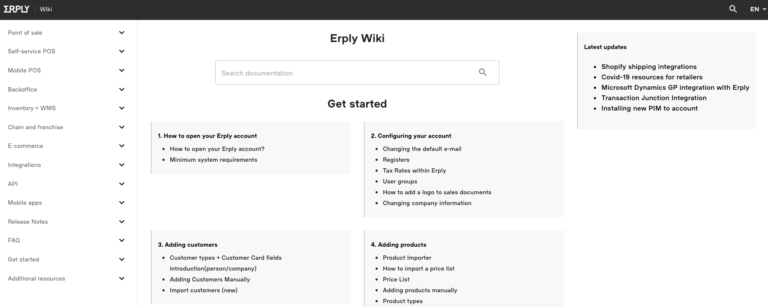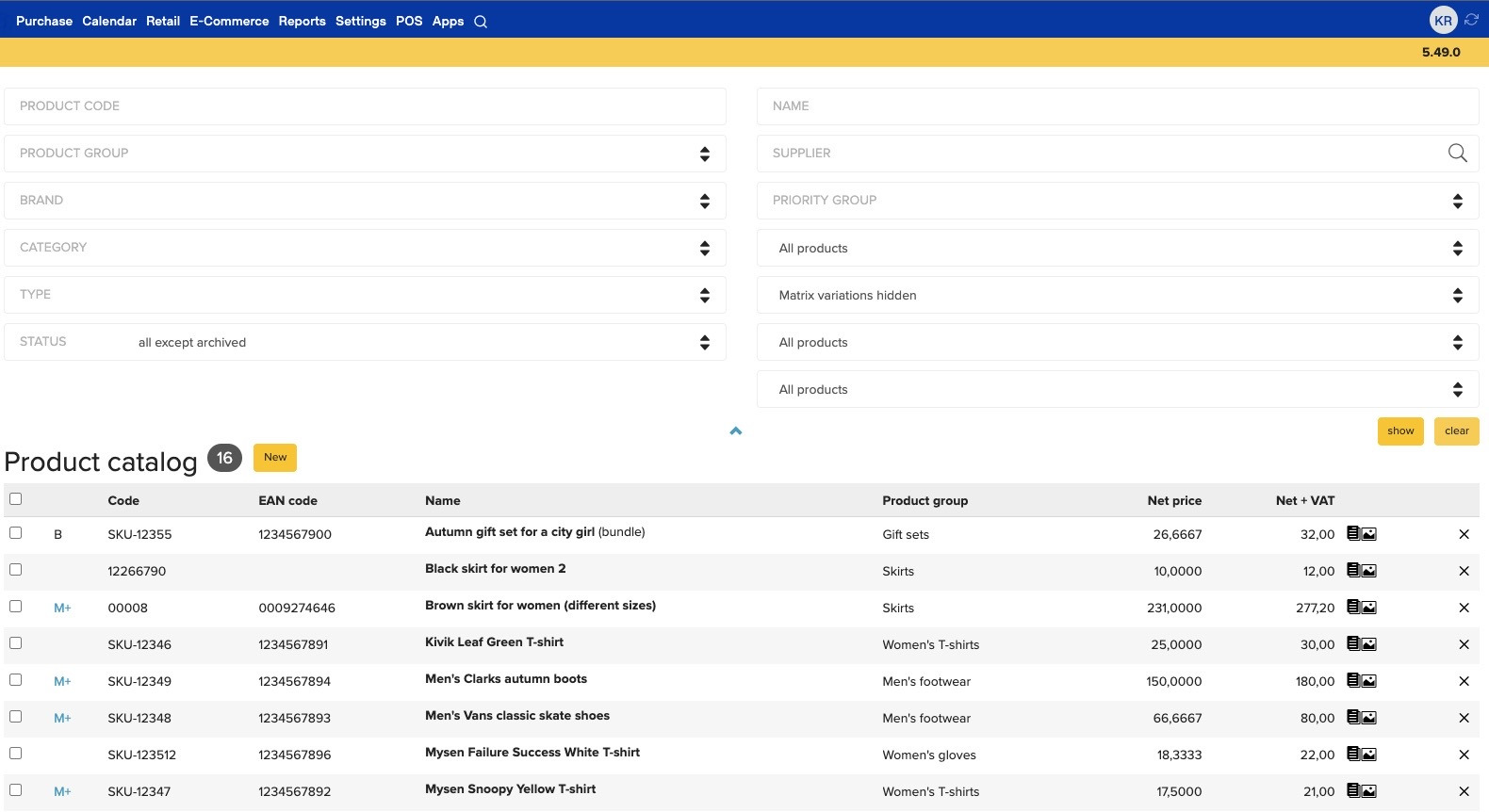Good news! Global markets have reported a general upswing over the past year. Slightly less good news? Markets, by their nature, are in constant flux, and no one in the retail industry—however strong the market may seem—is completely safe from economic harm. Any minor interruption in your day-to-day operations can lead to a major dip in returns (if you don’t believe us, just check out our recent post on the Macy’s Black Friday POS crash).
Is there a way bulletproof your retail company against market swings or unforeseeable catastrophes? Not entirely. But if you’re looking for a failsafe, finding a supplier that has your back couldn’t hurt.
Suppliers are partners that act either as ambassadors for the products you sell or as essential carriers that provide you with the material things you need to conduct business. As such, you probably shouldn’t take your supplier relationships lightly. In fact, you should take the collective management of your suppliers very, very seriously.
And we can show you how.
Here’s our overview of some key concepts to keep in mind when interfacing with your all-important suppliers.
The first one is obvious…
1. Choose the right supplier.
As with any important relationship—business or otherwise—it’s highly advisable to know exactly what you’re getting into. Since suppliers will be in charge of procuring, caring for and transporting the items that will keep your business running, you might want to approach your supplier search the same way you would a search for, say, a babysitter. Do your homework. Familiarize yourself with a supplier’s history and reputation before entering into any legal partnership. International analytics company Manthan suggests a careful review of any potential supplier’s price list, quality assurance, average turnaround times and overall capacity when considering your options. Entrepreneur.com likewise recommends retailers investigate a supplier’s financial solubility, as well as their delivery terms and discount offers, before settling on a candidate.
And don’t stop there. The Entrepreneur staff also counsels up-and-coming business owners to put any possible supplier through a complete vetting process—a process that should ideally include interviews with the supplier’s existing and former clients. “Ask [the supplier] for customer references,” Entrepreneur proposes, adding, “…call these customers and find out how well the supplier has performed.” “The key,” Entrepreneur analysts conclude, “is to know how [any] rough spots were handled.” Our takeaway? Don’t turn your back on a supplier because of a few mistakes (would you overlook a babysitter because they once ate a snack from a family fridge without asking?). Do walk away if those mistakes weren’t dealt with appropriately (you’d probably pass on the same babysitter if you discovered they never apologized and had a record of stealing.)
2. Decide on a suppliers’ hierarchy.
Suppliers are your primary sources—not only for the products you sell but also for the everyday items and logistical equipment you need for your business to function. This means that, when building a retail company, you’ll have to invest in several suppliers across a range of classifications, and you’ll have to designate an appropriate amount of attention and “TLC” for each one.
Jonathan Webb of Forbes.com advises developing a supplier relationship management plan that includes “supplier segmentation.” A segmentation process involves the systematic creation of your business of a hierarchy of suppliers through which you can evaluate each supplier according to how they affect your profits. From there, you can then “distribute internal resources” accordingly. So, the company that provides you with the main ingredient in your award-winning salad dressing? They get first dibs on your time and consideration. The guy who supplies you with pencils? Show him due courtesy and respect, but maybe don’t hire an administrative liaison to work with him directly. It’s a question of where best to focus your energy. The fewer resources allocated to less impactful lines of supply, the more manpower and business hours available for critical supplier relations.
3. Follow the golden rule.
We sort of hinted at this already—and, frankly, it should go without saying—but you should always treat your suppliers’ businesses the same way you’d want your own business to be treated. Regardless of where they fall on your carefully constructed hierarchy, each supplier you engage with should feel valued and appreciated. Keeping up morale in this way not only leads to smoother business processes and a potential uptick in returns, it’s also the right thing to do. “Building and preserving [supplier liaisons],” Manthan reports, can both increase customer satisfaction and “[ensure] better product quality and quality of service from the supplier, while reducing costs at the same time.”
Be kind and direct with your suppliers and be careful not to stir up any unnecessary animosity. Remember to allow for human error so long as the impact on your operations is small. Entrepreneur cautions that a contentious attitude can quickly leave you stranded with no suppliers whatsoever: “If you go to the mat with them on every bill, ask them to shave prices on everything they sell to you, or fail to pay your bills promptly, don’t be surprised when they stop calling,” the Entrepreneur staff explains, adding suppliers who enjoy a pleasant and profitable relationship with their retailers may be more willing to bail retailers out should any crisis arise.
Similarly, CIO (an IDG periodical) counsels retailers to maintain open lines of communication with suppliers at all times—particularly by forming a strong connection between the supply chain and the marketing team. Don’t leave your supplier in the dark about upcoming promotions or events, CIO warns; a well-timed heads up can mean the difference between a highly successful rollout and a devastating delay for your customers. Your company’s basic interpersonal skill levels can spell “red” or “black” for your organization, especially where your suppliers are concerned.
4. Always keep tabs.
You’ve got your suppliers in place. Good. You’ve segmented them according to their relative importance to your business. Very good. You’re taking pains to make sure each supplier is dealt with in a cordial and professional manner, but you’re not wasting too much effort on suppliers that don’t require your full attention. Even better.
What next?
Last, but most assuredly not least, you should employ the services of software that can help you monitor each of your suppliers and keep all pertinent supplier data on file and up to date. “As a practice, retailers need to keep a comprehensive database of supplier information including contact details, certificates, insurance paperwork, and taxpayer identification numbers,” Manthan contributor Vineeth Abraham writes in a blog post on supplier management. Sound advice if you want your purchase forms, inventory registrations, price lists and write-offs to be as accurate as possible (we’re being facetious here…you should always want this paperwork to be as correct as it can be).
Some parting words of wisdom…
Not sure how to keep tabs on all of your many suppliers? Erply has a few tools that can help. Our Inventory module, for example, lets you create an easily searchable suppliers’ catalog that can be filtered by name, group (i.e., “type” of supplier) or administrator (i.e., the person within your company who controls the relationship between your organization and any given vendor). Each new “supplier card” you add to your catalog features a variety of fields for storing information on your many suppliers. Available fields include taxpayer identification number (TIN), bank number, global location number (GLN), terms of delivery and payment schedule. There’s also extra space for any added notes you’d like to make about the supplier in question.
Erply provides tools to organize all your suppliers and contacts.
Still need advice on supplier relationships? Our consultants can help anytime.
When in doubt, though, we suggest you always refer back to number three.
Sign Up












